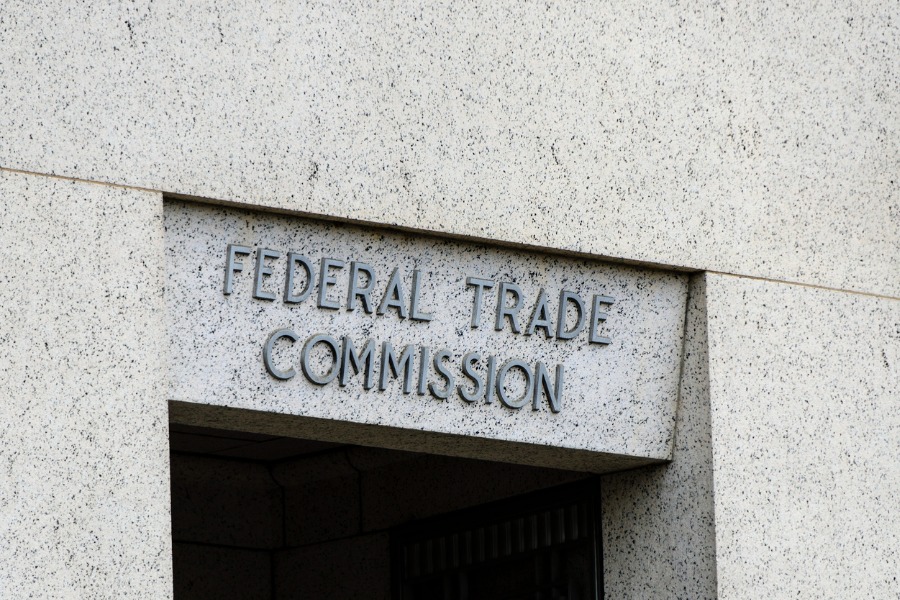

A ban on noncompete agreements that would have widespread impact on employment across industries has been struck down in court.
The Federal Trade Commission wanted to bring in the rule next month that would have almost completely banned the use of the agreements except for senior executives, which the FTC said would protect “the fundamental freedom of workers to change jobs, increasing innovation, and fostering new business formation.”
Around 20% of American workers, or 30 million people are believed to be subject to noncompetes including many in the financial services industry. While businesses say they are necessary to protect a loss of their investment in people, others cite the benefits for individuals such as advisors who want to switch firms.
When the rule was announced in April it faced an immediate backlash from industry groups and lawsuits including one brought by the US Chamber of Commerce and tax firm Ryan LLC. A legal expert told InvestmentNews at the time that wealth firms should be prepared for the impact of the rule rather than assuming the legal challenges would stop it.
But, at least for now, the rule has been stopped, as US District Judge Ada Brown ruled in Dallas that the FTC did not have the power to implement its ban calling it “unreasonably overbroad without a reasonable explanation.”
The Chamber of Commerce’s president and CEO Suzanne P. Clark was jubilant.
“This decision is a significant win in the Chamber’s fight against government micromanagement of business decisions,” she said. “A sweeping prohibition of noncompete agreements by the FTC was an unlawful extension of power that would have put American workers, businesses, and our economy at a competitive disadvantage. We remain committed to holding the FTC — and all agencies — accountable to the rule of law, ensuring American workers and businesses can thrive.”
And Ryan chairman and CEO G. Brint Ryan didn’t hold back in his statement.
“Today we prevail in protecting the very foundation of innovation that drives our economy from the overreach of the FTC in its misguided mission to invalidate millions of employment contracts,” he said. “Non-competes serve as a cornerstone of mutual trust between employer and employee. As a champion for our clients and business owners nationwide, Ryan stands proud in the role we’ve played to protect businesses’ intellectual property and ongoing investment in employee training and skill development.”
But is it too soon to start popping the Champagne corks in boardrooms across the nation? FTC spokesperson Victoria Graham said a challenge to the judge’s decision could be ahead.
“We are disappointed by Judge Brown’s decision and will keep fighting to stop noncompetes that restrict the economic liberty of hardworking Americans, hamper economic growth, limit innovation, and depress wages,” she said. “We are seriously considering a potential appeal.”
In clarification of where we are today, law firm Gibson Dunn who represented Ryan LLC, said:
“The court’s ruling means that the Non-Compete Rule will not take effect on September 4. The FTC cannot enforce it against anyone, non-competes that were enforceable before the rule remain enforceable, and businesses and workers are free to enter into new non-competes. The FTC may appeal the ruling to the Fifth Circuit. The FTC has not yet indicated whether or when it may appeal.
The lawsuit is one of three to challenge the FTC’s proposed ban with final determinations pending in Florida and Pennsylvania – one court sided with the FTC and the other with plaintiffs in initial deliberations.

Relationships are key to our business but advisors are often slow to engage in specific activities designed to foster them.

Whichever path you go down, act now while you're still in control.

Pro-bitcoin professionals, however, say the cryptocurrency has ushered in change.

“LPL has evolved significantly over the last decade and still wants to scale up,” says one industry executive.

Survey findings from the Nationwide Retirement Institute offers pearls of planning wisdom from 60- to 65-year-olds, as well as insights into concerns.
Streamline your outreach with Aidentified's AI-driven solutions
This season’s market volatility: Positioning for rate relief, income growth and the AI rebound
